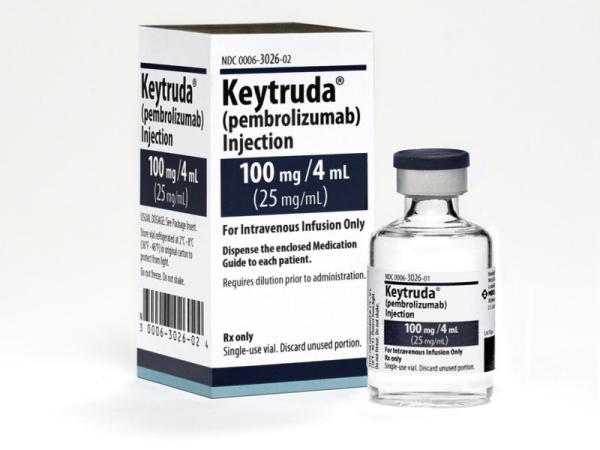Keytruda Interactions
There are 588 drugs known to interact with Keytruda (pembrolizumab), along with 9 disease interactions. Of the total drug interactions, 3 are major, and 585 are moderate.
- View all 588 medications that may interact with Keytruda
- View Keytruda disease interactions (9)
Most frequently checked interactions
View interaction reports for Keytruda (pembrolizumab) and the medicines listed below.
- albuterol
- amlodipine
- aspirin
- atorvastatin
- carboplatin
- CoQ10 (ubiquinone)
- dexamethasone
- Eliquis (apixaban)
- famotidine
- folic acid
- gabapentin
- levothyroxine
- lisinopril
- lorazepam
- losartan
- melatonin
- metformin
- metoprolol
- MiraLAX (polyethylene glycol 3350)
- omeprazole
- ondansetron
- oxycodone
- pantoprazole
- prednisone
- prochlorperazine
- rosuvastatin
- tramadol
- Tylenol (acetaminophen)
- Vitamin B12 (cyanocobalamin)
- Vitamin D3 (cholecalciferol)
Keytruda disease interactions
There are 9 disease interactions with Keytruda (pembrolizumab) which include:
- immune system disorder
- HSCT
- myasthenia gravis
- organ transplant
- colitis
- hepatic impairment
- multiple myeloma
- pneumonitis
- thyroid disease
More about Keytruda (pembrolizumab)
- Keytruda consumer information
- Compare alternatives
- Pricing & coupons
- Reviews (253)
- Drug images
- Side effects
- Dosage information
- Patient tips
- During pregnancy
- Support group
- FDA approval history
- Drug class: anti-PD-1 and PD-L1 monoclonal antibodies (immune checkpoint inhibitors)
- Breastfeeding
- En español
Related treatment guides
Drug Interaction Classification
| Highly clinically significant. Avoid combinations; the risk of the interaction outweighs the benefit. | |
| Moderately clinically significant. Usually avoid combinations; use it only under special circumstances. | |
| Minimally clinically significant. Minimize risk; assess risk and consider an alternative drug, take steps to circumvent the interaction risk and/or institute a monitoring plan. | |
| No interaction information available. |
Further information
Always consult your healthcare provider to ensure the information displayed on this page applies to your personal circumstances.


